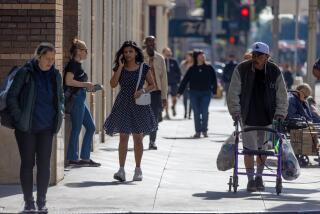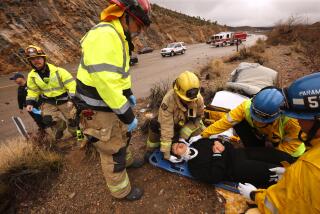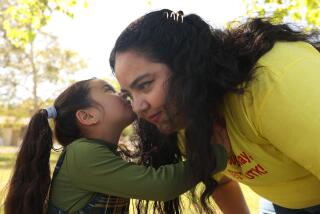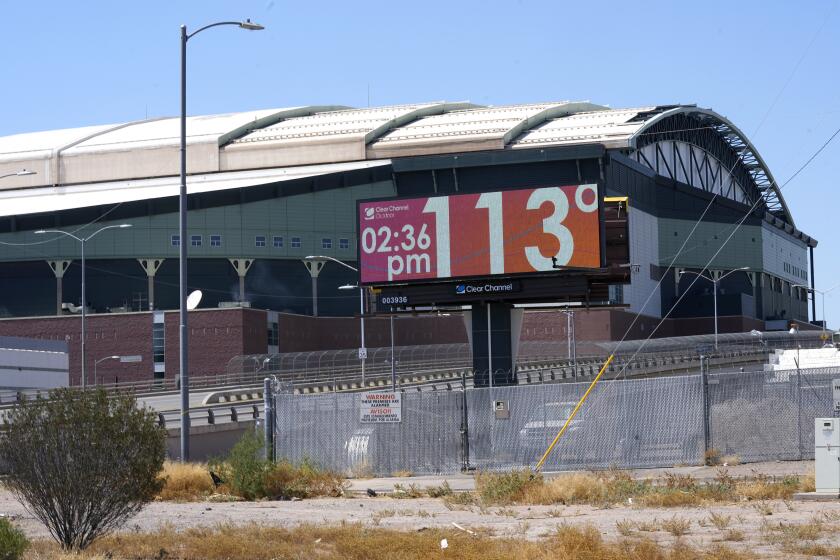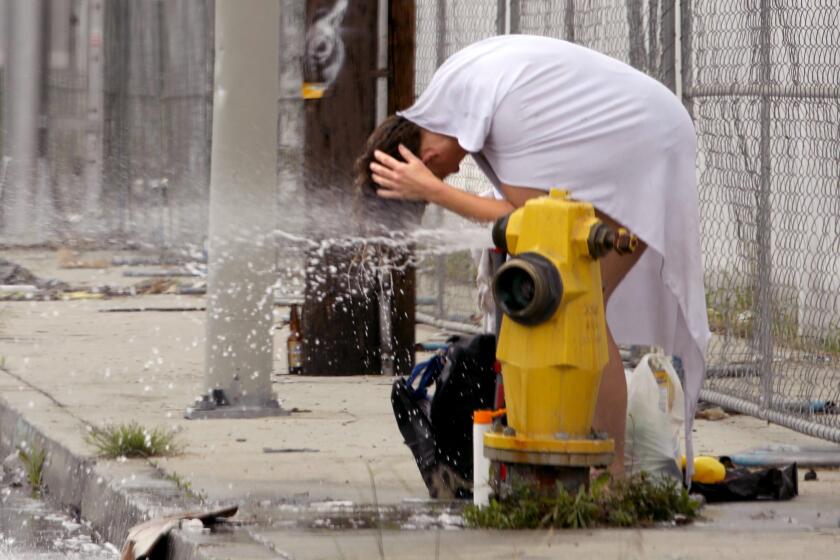A Sudden Sign of Hope on Road to Social Change
I’m into bicycling.
Most assuredly, it’s a yuppie sport. But I can assure you that I don’t own a condo by the beach or a brand-new BMW, although I do admit to owning an expensive, foreign-made Mangusta 12-speed bike.
Recently, while bicycling through the city of Bell, I saw a sign on the window of a hardware store that almost caused me to fly off my bike headfirst, without a helmet, into a fire hydrant.
The sign said, “We Speak English.”
I made a U-turn, thinking I had, perhaps, misread the sign. Indeed, it read, “We Speak English.” It gave me the queasy feeling that I had landed in the proverbial twilight zone of someone else’s imagination.
A cold chill came over me. I was neither delirious nor in a state of dehydration, but I drank slowly from my trendy water bottle just the same.
Something was out of sync. I couldn’t make up my mind whether the sign constituted a racial slur or a good-natured joke; if it was part of the “English Only” movement or Montezuma’s revenge; if I was supposed to resent it or smile approvingly.
It took me back to a time when “Se Habla Espanol--We Speak Spanish” signs were still a rarity.
The memories weren’t pleasant. My father came to the United States first, then brought our family from Mexico in 1960. There were eight of us, and each was exposed to virulent hatred at school and in our neighborhood.
Although our parents made us take daily baths or showers, the epithet “dirty Mexicans!” was constantly hurled by seemingly everyone with whom we came into contact.
And our neighborhood was East Los Angeles, not Bel-Air.
“Why don’t you go back to Mexico!” the Mexican-American vice principal at my elementary school once shouted at my mother, belligerent over her inability to comprehend English.
It was traumatic. It was also a lesson in equality. Anglos and Mexican-Americans hated us equally.
“Wetbacks.” That’s what they called us.
“This used to be Mexico,” our parents would tell us. “Next time anyone calls you a wetback, tell them we didn’t cross an ocean to get here.”
Armed with that knowledge, we never felt intimidated or inferior to Anglos. It was the Mexican-Americans we couldn’t figure out. They had the same skin color as we did. And, of course, their roots were the same as ours. Yet they hated us with unadulterated passion. I couldn’t figure out what we had done to offend them.
Instead of providing us refuge, they held us in contempt. Instead of sanctuary, ostracism. In those days, there was no Father Luis Olivares of La Placita Church greeting us with open arms.
Perplexed at this, when I was about 6, I asked my parents why Mexican-Americans hated us, why they didn’t know, or claimed not to know, how to speak Spanish, and why they denied being Mexican.
The answer, my parents confided, was they didn’t eat chili.
Being terrified of chilies and never having eaten one, I swore then and there that I would eat a jalapeno chili pepper--even if it killed me.
And it practically did. It was like putting fire to my feet. No. Worse. It was like swallowing burning coals. It was as if my lips had been set afire. My tongue blistered. My eyes bulged. My nose dripped and my ears pulsated. But I refused to cry.
It was my first political stand and a painful one at that.
To this day, I eat chili, plenty of it. And to this day, although I have mastered English, I have not forgotten the Spanish language. And nowadays, I regularly eat spicy Chinese food, though I must confess I have not become trilingual as a result.
How times have changed. Today, Spanish is spoken everywhere in Southern California, in both the public and private sectors. Sure, some people still cringe at the sound of Spanish, as they did when I was growing up. But for the most part, Latinos in the professions and in public service help prevent widespread blatant discrimination against those who do not speak English.
And the English Only movement notwithstanding, it’s a safe bet that we will not soon be returning to the days when little children had to resort to eating chili for fear of losing their language, identity and culture.
I saw another sign the other day: “No Help Wanted.” Well, that’s another story.
More to Read
Start your day right
Sign up for Essential California for news, features and recommendations from the L.A. Times and beyond in your inbox six days a week.
You may occasionally receive promotional content from the Los Angeles Times.
